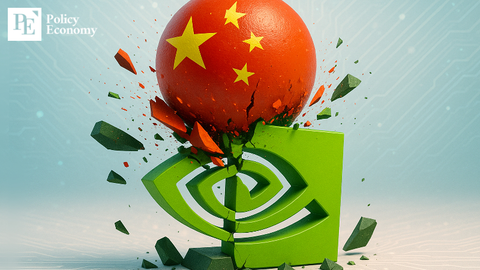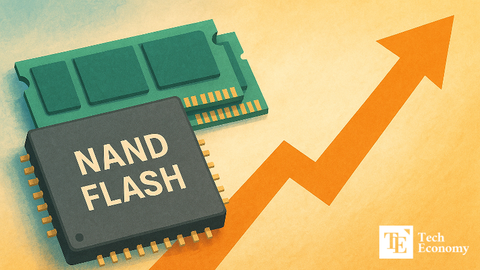Rheinmetall’s Explosive Growth: How Germany’s Defense Giant is Dominating the Industry
Input
Modified
Rising Demand for Defense: How Rheinmetall Became Europe’s Leading Military Supplier Germany’s Defense Shift: Increased Military Spending and Policy Changes Fuel Growth A Global Defense Powerhouse: Rheinmetall’s Expanding Influence Beyond Europe
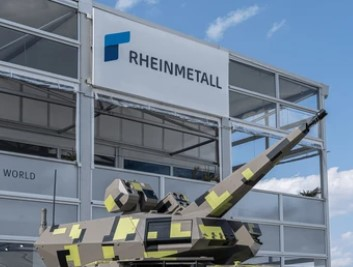
Rising Demand for Defense: How Rheinmetall Became Europe’s Leading Military Supplier
As the world faces growing geopolitical tensions and the need for enhanced military readiness, one company has emerged as a major beneficiary of these changes: Rheinmetall, Germany's leading defense contractor. Over the past few years, the company has experienced a stunning surge in its stock price, rising by over 1,000%. This growth has positioned Rheinmetall as one of the most valuable defense companies in Europe, surpassing even established players like Volkswagen in terms of market valuation. The company's business is booming, driven by the shifting dynamics of global security and the European Union’s renewed commitment to defense spending.
Rheinmetall's exceptional growth is rooted in its strategic position within the defense sector. The German defense giant is known for manufacturing a wide range of military hardware, from advanced weapon systems and tanks to electronic warfare solutions and ammunition. With the political landscape of Europe changing rapidly, particularly with the war in Ukraine, Rheinmetall is poised to continue its expansion. The surge in defense budgets across the European Union, especially in response to the perceived diminishing role of the United States in NATO, has opened new avenues of opportunity for the company, making its market reach not just limited to Germany but extending across Europe and beyond.
The scale of Rheinmetall's growth is difficult to overstate. Over the course of several years, the company’s market value has skyrocketed, with its stock rising by over 1,000%. In a stunning turn of events, Rheinmetall has even outpaced Volkswagen, Germany's iconic automaker, in terms of market valuation. This unprecedented rise highlights not only the importance of defense spending in Europe but also the growing significance of Rheinmetall as a key player in the global defense industry.
Rheinmetall’s ability to achieve such remarkable growth can be attributed to several factors, but perhaps the most important is its diverse and innovative product portfolio. The company produces everything from the highly-regarded Leopard tanks to cutting-edge electronic warfare systems, making it a one-stop-shop for European military needs. As NATO allies and European Union member states ramp up their defense budgets in response to rising tensions, Rheinmetall’s ability to supply both advanced technologies and traditional military equipment places it in an enviable position to capture a larger share of the defense market.
The company’s strong track record in delivering state-of-the-art military hardware and its reputation for reliability have helped solidify its standing within the defense industry. As European countries increasingly prioritize military spending, Rheinmetall’s reputation for quality, innovation, and dependability makes it an attractive partner for governments seeking to modernize their armed forces.
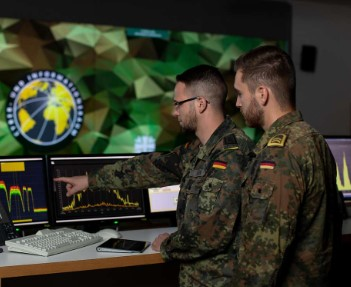
Germany’s Defense Shift: Increased Military Spending and Policy Changes Fuel Growth
Rheinmetall's success is also closely tied to Germany’s shift in defense priorities. For decades, Germany has adhered to a policy of fiscal conservatism, particularly in regard to military spending. This approach was largely shaped by the post-World War II philosophy of limiting defense expenditures. However, in recent years, this stance has undergone a significant change, spurred by growing security concerns in Europe.
The invasion of Ukraine by Russia in 2022 has underscored the vulnerabilities that European nations face, highlighting the need for stronger defense capabilities. Germany, traditionally seen as a reluctant military power, has responded by rethinking its defense spending priorities. This includes a historic decision to dramatically increase its defense budget, with a focus on modernizing its military and ensuring that its armed forces are adequately prepared for emerging threats.
As part of this shift, Germany has committed to investing billions of euros into defense, with a particular emphasis on purchasing new military hardware and upgrading existing systems. The impact of this decision on Rheinmetall is clear: as the German government seeks to fulfill its defense needs, Rheinmetall is ideally positioned to win a significant share of these contracts. Whether it's supplying tanks, artillery systems, or advanced defense technologies, Rheinmetall stands to benefit greatly from this renewed commitment to defense spending.
The increase in defense spending is not limited to Germany alone. Other countries within the European Union are also boosting their military budgets as a response to the same geopolitical threats. As a key supplier to NATO and EU nations, Rheinmetall is well-positioned to meet the growing demand for advanced defense products across the continent.
One of the key factors driving Rheinmetall’s success is the increasing demand for steel. Steel plays an essential role in the manufacturing of military hardware, including tanks, armored vehicles, and naval vessels. As European countries expand their defense budgets, the demand for steel will rise significantly, creating an opportunity for companies like Rheinmetall that are deeply integrated into the defense supply chain.
Rheinmetall has access to steel production capabilities, which allows it to control a crucial part of the manufacturing process. With fewer steel mills in operation across Europe today, the availability of high-quality steel for military applications has become a growing concern. This shortage, combined with the rising demand for military-grade steel, gives Rheinmetall an edge over competitors that may not have the same level of control over their supply chains.
The importance of steel in defense manufacturing cannot be overstated. Military vehicles like the Leopard tank require vast quantities of specialized steel to ensure their durability and combat effectiveness. In addition, steel is essential for the production of other critical military infrastructure, such as fortified bunkers, naval ships, and aircraft carriers. As demand for these types of equipment increases across Europe, Rheinmetall is poised to benefit from the growing need for high-performance steel.
In addition to increasing defense spending, Germany has also made a significant policy shift regarding its fiscal approach. The country’s longstanding “debt brake” policy, which has limited the government’s ability to take on debt, has traditionally been a cornerstone of Germany's economic strategy. However, in the face of rising security threats, the German government has decided to lift the debt brake, allowing for greater flexibility in defense spending.
This shift in policy allows Germany to allocate more funds toward defense and national security initiatives, creating additional opportunities for defense contractors like Rheinmetall. By removing the constraint on national debt, Germany can now fund larger-scale defense projects without the limitations imposed by previous fiscal rules. For Rheinmetall, this means an even greater potential for securing long-term defense contracts, as the German government looks to modernize its armed forces and ensure its readiness for future challenges.
The lifting of the debt brake is a significant development in Europe’s defense sector, and Rheinmetall stands to gain immensely from this policy change. With the German government freed from its fiscal constraints, Rheinmetall and other defense contractors can expect a steady stream of lucrative defense contracts in the years to come.
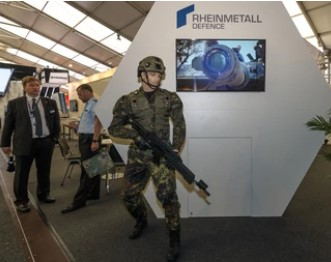
A Global Defense Powerhouse: Rheinmetall’s Expanding Influence Beyond Europe
While Rheinmetall’s success is firmly rooted in Germany, the company’s ambitions extend far beyond its home country. As NATO’s role in global security continues to evolve, Rheinmetall has positioned itself as a key supplier to the alliance and its member states. The company’s growing portfolio of military technologies and defense systems has made it a vital player in Europe’s defense infrastructure, and it is likely to continue expanding its presence in other international markets.
The company’s reputation for delivering cutting-edge, reliable military solutions has allowed it to build a strong network of customers across Europe and around the world. As defense budgets continue to grow globally, Rheinmetall’s innovative products and strategic positioning will ensure that it remains at the forefront of the defense industry.
The meteoric rise of Rheinmetall is indicative of the broader shift in European defense priorities. As Germany and its NATO allies boost their defense spending in response to growing security concerns, Rheinmetall is well-positioned to capitalize on the increasing demand for advanced military technologies. The company’s remarkable growth in recent years is just the beginning; as defense budgets continue to grow and steel becomes even more essential in military manufacturing, Rheinmetall’s future looks incredibly promising.
In conclusion, Rheinmetall’s growth story is a testament to the changing dynamics of global security and the evolving defense landscape. With its unmatched expertise in military technology, its control over critical manufacturing inputs like steel, and its strategic position within the European defense sector, Rheinmetall is set to continue thriving in an era where defense spending is expected to remain at the forefront of national security agendas.

